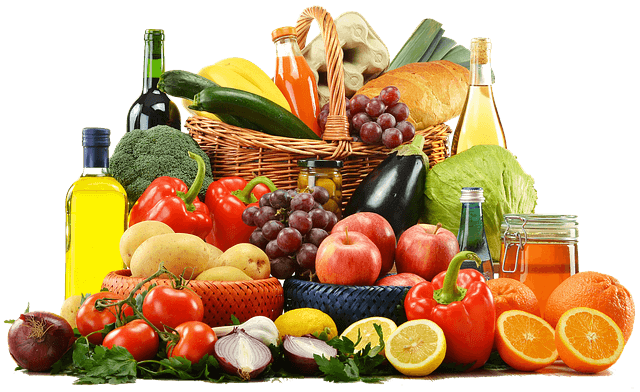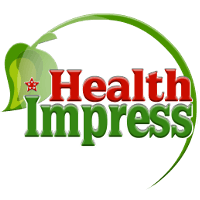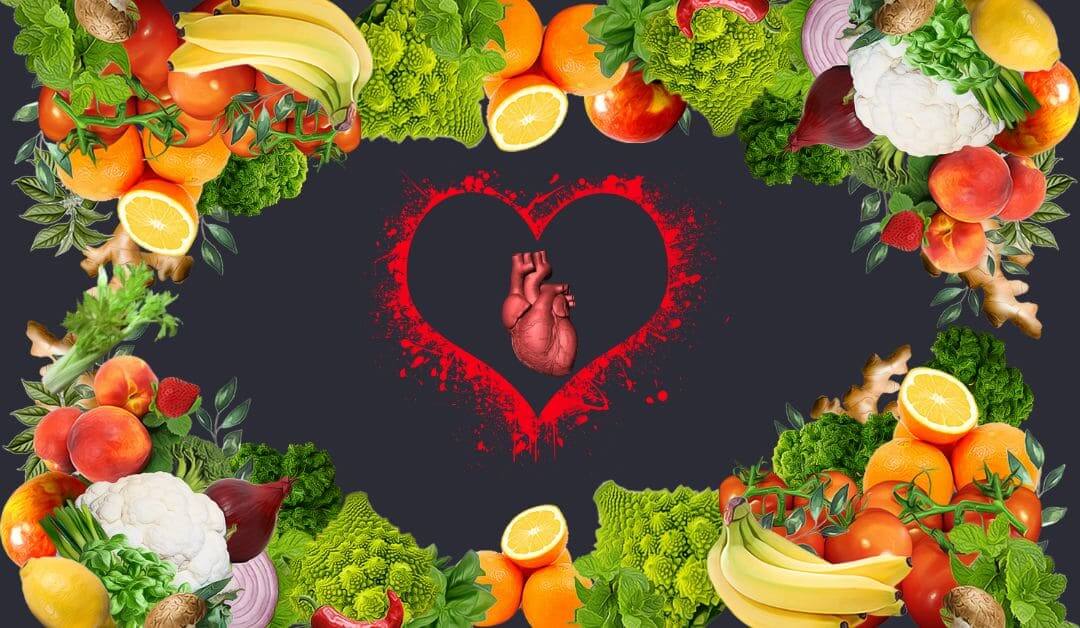Men's Health, General Health, Women's Health
Excellent 20 Natural Ways to Control Blood Pressure
If you’re looking for ways to keep your blood pressure in check, and hence need natural ways to control blood pressure, you’ve come to the right place. In this blog, we’ll explore some natural ways to control your blood pressure and how to reduce high blood pressure naturally at home. From dietary changes to stress-reduction techniques, we’ll cover everything you need to know to keep your blood pressure at a healthy level.
What are the natural ways to control blood pressure?
1/ Consume more water
At times people ask what to drink to lower blood pressure quickly. See water is essential for our survival and it should be no surprise that it can also help to lower our blood pressure. When we are dehydrated, our blood volume decreases and our heart has to work harder to pump blood throughout our body. This puts an extra strain on the cardiovascular system and can lead to an increase in blood pressure. Drinking plenty of water helps to keep our blood volume up and prevents the heart from having to work as hard. To many, in the morning, the immediate treatment for high blood pressure at home is drinking water when I wake up.

There is no specific amount of water that everyone needs to drink in order to lower their blood pressure, but the general recommendation is eight 8-ounce glasses per day. If you are not used to drinking this much water, start slowly and increase your intake over time. You can also try adding some lemon or lime juice for flavor or adding a few slices of cucumber or strawberries for a refreshing twist. Whenever you feel that your pressure has gone up, drinking water is one of the tricks to lower blood pressure instantly.
2/ Eat a balanced diet
What you eat plays a big role in controlling your blood pressure. A diet that is high in salt, fat, and cholesterol can cause high blood pressure. On the other hand, a diet that is high in fiber, fruits, and vegetables can actually help to lower your blood pressure. So it’s important to eat a balanced diet that includes plenty of fresh fruits and vegetables, whole grains, low-fat dairy products, lean meats, fish, and nuts.
3/ Eat magnesium-rich foods
Magnesium is a mineral that’s crucial to the body’s function. Low levels of magnesium are linked to high blood pressure.
- Good sources of magnesium include:
- Dark leafy greens, such as spinach
- Nuts and seeds, such as almonds and pumpkin seeds
- Beans and lentils
- Tofu
- Whole grains, such as brown rice and oats
- Fatty fish, such as salmon and mackerel
- Dark chocolate
- Avocados
4/ Don’t eat processed foods
One natural way to lower your blood pressure is to avoid processed foods. These are foods that are packaged and often have added sugar, fat, or salt. They’re often high in calories and low in nutrients. Instead, focus on eating fresh, unprocessed foods. These include fruits, vegetables, whole grains, lean protein, and healthy fats.
5/ Utilize supplements that support healthy blood pressure
There are a few different ways you can utilize supplemnts to support healthy blood pressure.
- Eat a diet rich in whole foods like fruits, vegetables, whole grains, and lean protein. These foods are packed with nutrients that support cardiovascular health.
- Try using herbs and spices like garlic, ginger, cayenne pepper, and turmeric in your cooking. These ingredients have been shown to help reduce inflammation and improve blood circulation.
- Get regular exercise. Exercise helps to strengthen the heart muscle and can also help reduce stress levels.
- Make sure to get enough sleep each night. Sleep is vital for overall health and well-being, and it can also help to regulate blood pressure levels.
- Drink plenty of water each day and avoid sugary or caffeinated beverages. Staying hydrated is important for optimal health, and it can also help to keep blood pressure levels in check
6/ Eat foods high in calcium.
Calcium is one of the minerals that your body needs to maintain healthy blood pressure. Eat foods high in calcium, such as dairy products, leafy green vegetables, and calcium-fortified foods and beverages. Adults need about 1,000 mg of calcium a day, so if you can’t get enough from food, take calcium supplements.

7/ Examine deep breathing or meditation
Some people with high blood pressure find that relaxation techniques such as deep breathing or meditation can help reduce their numbers. These activities can help you control your sympathetic nervous system, which controls the fight-or-flight response. When you feel anxious, your blood pressure increases.
8/ Take berries
Berries are rich in antioxidants and polyphenols, which can help lower blood pressure by improving endothelial function. Blueberries, in particular, have been shown to have a positive effect on blood pressure. A 2012 study published in the Journal of Agricultural and Food Chemistry found that supplementing with blueberry powder reduced blood pressure in people with hypertension by 5.5 mmHg (systolic) and 3.8 mmHg (diastolic).
9/ Have a restful night’s sleep
High blood pressure can be a real drag on your overall health and well-being. It’s important to take steps to control it, and one of the best things you can do is get a good night’s sleep.
Lack of sleep can raise your blood pressure, and people who have high blood pressure are more likely to have trouble sleeping. So it’s important to catch up on your zzz’s.
There are a few things you can do to help yourself sleep better:
- Stick to a regular sleep schedule as much as possible. Go to bed and wake up at the same time every day, even on weekends. This will help regulate your body’s natural sleep rhythm.
- Create a relaxing bedtime routine. Do something calming before bed, such as reading or taking a bath.
- Avoid caffeine and alcohol before bed. They can make it harder to fall asleep and stay asleep.
- Limit screen time before bed. The bright light from screens can disrupt your body’s natural sleep cycle.
10/ Cut back on refined carbs and added sugars
You know that eating right can help keep your blood pressure in check, but what specifically should you eat? The Dietary Approaches to Stop Hypertension (DASH) diet urges increased consumption of fruits and vegetables, whole grains, low-fat dairy, poultry, fish and nuts while limiting red meat, sugary drinks and sodium.
Cutting back on refined carbs and added sugars is also important. That means ditching the white bread, white rice and pasta in favor of their whole-grain counterparts. When it comes to sugar, be especially cautious of high-fructose corn syrup, a sweetener often used in processed foods and soft drinks. Excess sugar can lead to weight gain, which can contribute to hypertension.
11/ Quit smoking
Smoking is one of the leading causes of high blood pressure. If you smoke, quitting is one of the best things you can do to lower your blood pressure. Quitting smoking can be difficult, but there are many resources available to help you. Talk to your doctor about quitting smoking.
12/ Lose weight and watch your waistline
If you’re overweight or obese, losing weight can help lower your blood pressure. In general, you might need to lose about 1/2 to 1 pound a week to start seeing results. That means cutting back on calories. You can do this by eating smaller portions, making healthier food choices or adding more physical activity to your daily routine. Slowly losing weight over a period of months can help you keep the weight off and avoid putting extra strain on your heart and blood vessels.
13/ Eat dark chocolate or cocoa
Found in practically every grocery store, dark chocolate and cocoa powder offer potential health benefits. Their effects on blood pressure, however, are less clear. Some studies have shown that dark chocolate and cocoa can decrease blood pressure, while other research has found no significant effects.
Despite the mixed results, consuming small amounts of dark chocolate or cocoa may be beneficial for lowering blood pressure. A 2019 study found that eating about an ounce (28 grams) of dark chocolate daily for four weeks lowered blood pressure by 2 mmHg in people with hypertension.
Dark chocolate and cocoa contain flavonoids, which are plant-based substances that have antioxidant effects. These substances may help lower blood pressure by relaxing your arteries and improving blood flow.
14/ Learn to manage stress
Stress can sabotage your efforts to control your blood pressure. When you’re stressed, your body releases hormones that constrict your arteries and raise your blood pressure. This is why managing stress is an important part of controlling high blood pressure.
There are many effective stress management techniques, but what works for one person may not work for another. You may need to try several different techniques before you find one that works for you. Some people find relief by exercising regularly, journaling, spending time outdoors or practicing meditation or relaxation techniques such as breathing exercises, progressive muscle relaxation or yoga.
If you’re struggling to manage stress on your own, don’t hesitate to ask for help. Talk to your doctor about ways to reduce stress, or consider talking to a therapist or counselor who can help you learn coping strategies.
15/ Cut back on caffeine
If you have high blood pressure, you might need to cut back on your coffee drinking. That jolt of caffeine in the morning can cause a short-term spike in blood pressure. If you can’t give up your daily fix, switch to decaf. It contains less than one-tenth of the caffeine of regular coffee.
16/ Eat more potassium-rich foods
One way to lower your blood pressure is to eat more potassium-rich foods. Potassium helps balance out sodium in your body, and eating enough of it can help reduce your risk of high blood pressure.
Some potassium-rich foods that you can include in your diet are bananas, oranges, tomatoes, potatoes, beans and leafy greens. aim for 4,700 mg of potassium per day.
In addition to eating more potassium-rich foods, you can also try to consume less sodium. Too much sodium in your diet can cause your body to retain water and lead to high blood pressure. The American Heart Association recommends consuming no more than 2,300 mg of sodium per day.
If you are looking for a natural way to lower your blood pressure, Diet is a great place to start!
17/ Drink less alcohol
If you drink alcohol, do so in moderation. That means no more than two drinks a day for men and one for women. One drink equals 12 ounces of beer, 5 ounces of wine or 1.5 ounces of 80-proof liquor.
18/ Reduce your sodium intake in your diet
Reduce your sodium intake in your diet: Consuming too much sodium can contribute to high blood pressure. The Dietary Guidelines for Americans recommend that adults consume no more than 2,300 mg of sodium per day. To help reduce your sodium intake, avoid adding salt to your food and cook with little or no salt. You can also check food labels for the sodium content and choose foods that are low in sodium.
19/ Walk and exercise regularly
Walking and exercising regularly are two of the best things you can do to control your blood pressure. Walking is a great way to get your heart rate up and get some exercise, and it’s also a great way to reduce stress. Exercise is also a great way to control your blood pressure. If you can get your heart rate up for 30 minutes, you’ll be able to burn off some excess calories and reduce your risk of high blood pressure.
20/ Monitor your blood pressure at home and get regular checkups
If you have high blood pressure, you need to monitor it closely and get regular checkups. There are natural ways to control your blood pressure, but you should always speak to your doctor before changing your diet or lifestyle.
Monitoring your blood pressure at home is a good way to keep track of your progress and make sure that your blood pressure changes are due to the changes you’re making. Get a home blood pressure monitor and take readings every day, or every week if your doctor tells you that’s okay.
There are many natural ways to lower blood pressure, including:
- Diet: Eating a healthy diet can help lower your blood pressure. Eating less salt, fat, and sugar can help, as can eating more fruits and vegetables.
- Exercise: Regular exercise can help lower your blood pressure by making your heart stronger and improving your circulation.
- Relaxation: Stress can raise blood pressure, so relaxation techniques like yoga or meditation can be helpful.
- Herbal remedies: There are several herbs that are traditionally used to lower blood pressure, including hibiscus, ginger, garlic, and cayenne pepper.
Get support for high blood pressure
High blood pressure can be tough to manage on your own. You might need help from friends, family, and your doctor to cut back on salt, exercise more, and take your medicine as prescribed.
What Is High Blood Pressure?
High blood pressure is when your systolic (top number) is 140 or higher, or your diastolic (bottom number) is 90 or higher. If only one of those numbers is high, you have elevated blood pressure. This condition puts extra strain on your heart and arteries. Over time, it increases your risk for heart attacks, strokes, aneurysms, and kidney disease.
One in three American adults has high blood pressure, according to the Centers for Disease Control and Prevention (CDC). But many don’t know they have it because it often has no symptoms. A simple blood pressure test can find out if you have high blood pressure.
What Causes High Blood Pressure?
There are many things that can cause your blood pressure to rise, including:
- Eating a diet high in salt
- Being overweight or obese
- Lead exposure
- Lack of physical activity
- Stress
- Smoking tobacco
- Excessive alcohol consumption
- Certain medical conditions such as kidney disease and sleep apnea
High Blood Pressure Symptoms
If you think you may have high blood pressure, look out for these symptoms:
- Constant headaches
- Dizziness
- Nosebleeds
- Shortness of breath
- Chest pain
- Irregular heartbeat


